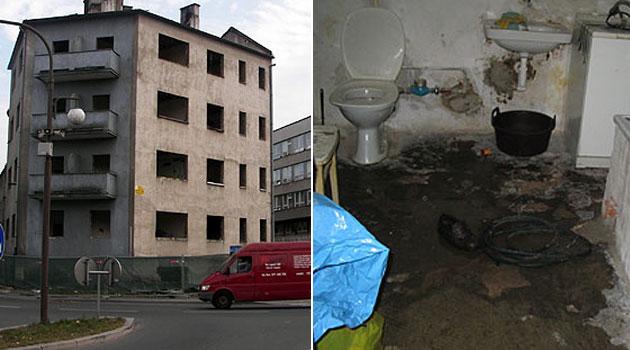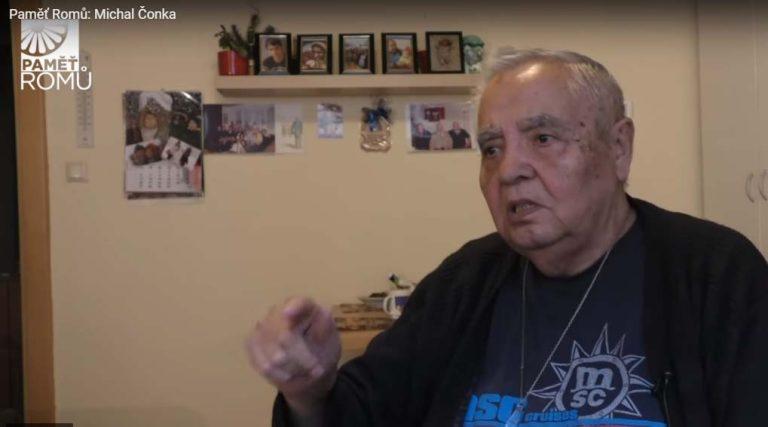Czech town refuses to settle out of court with Roma whom they forcibly relocated 13 years ago

Representatives of the Czech town of Vsetín have decided not to approve the conclusion of an out-of-court settlement with the former Romani tenants of a building that used to stand in the town center, but want the matter to be decided by a court. Vsetín evicted the Romani tenants from the centrally-located, dilapidated building in the year 2006.
The courts have been dealing with the case since 2008. An out-of-court settlement was recently rejected by the local council.
In 2006 the town hall bought old houses in the Jeseníky district and coerced some of the evicted Romani families into assuming 20-year loans from the town in order to purchase them. Another 40 Romani families were relocated to the periphery and housed in apartment units made from metal shipping containers.
The evicted families who were relocated to the Jeseníky and Prostějov districts were coerced into buying half-collapsed houses in remote villages. Three families were relocated into such old houses in the villages of Stará Červená Voda, Vidnava and Vlčice.
The evictees were coerced into assuming interest-free loans in order to buy the properties from Vsetín. Mayor Jiří Čunek also coerced more Romani people into relocating to the municipalities of Čechy pod Kosířem and Dřevnovice in the Prostějov district.
That particular instance involved two families with a total of 26 members. The case of the Romani evictions was then taken up almost a decade ago by police, prosecutors and the then-Public Defender of Rights, Otakar Motejl.
While police officers found that the mayor had not broken the law by organizing the evictions and removals, Motejl found that the town hall had committed errors and violated the rights of the Romani tenants to respect for their family life and privacy. The Human Rights Committee in the Czech Senate subsequently supported the standpoint of the Public Defender of Rights.
The Roma allege that they were evicted and removed from Vsetín by force. “They intimidated us by saying that we would end up living on the street and the kids would go to an orphanage [if we didn’t comply],” Romani evictee Jolana Tulejová told news server iDNES.cz in 2006.
The evictees criticized the fact that employees of the local authority forced them to sign papers without allowing them to read them, papers associated with agreeing to buy single-family homes sight unseen. Allegedly the evictees did not even have the opportunity to choose the location to which their families would move.
The single-family homes they became encumbered with were in very bad condition, as was confirmed at the time by a previous owner of one of the properties, who also criticized the fact that the town hired brokers for the purchase and hid their intentions from her. “If I had known they would just resell the property like that, I would never have signed the contract,” Olga Juklová, an original owner of a property the evictees were coerced into buying, told the Mf DNES newspaper at the time.
“It’s a little old house that needs repair. You couldn’t even fit 11 people inside it at once,” Juklová said, referencing the reported size of the family who were coerced into relocating to the property.
Juklová sold the single-family home through the Real Spektrum agency in Prostějov for CZK 320 000 [EUR 12 400], but the evicted Tulej couple were coerced into assuming a loan of CZK 460 000 [EUR 18 000] to buy the property. The Romani evictees are now seeking CZK 5.2 million [EUR 202 000] in compensation from the town.
Their lawsuit has been rejected three times by the Regional Court, but the High Court has always granted their appeals and returned the case to the lower level for reprocessing. “Last time [the High Court] ordered the presiding judge to be changed. The town failed with its appeal to the Supreme Court of the Czech Republic and with its complaint to the Constitutional Court of the Czech Republic,” Mayor Jiří Růžička (Christian Democrats – KDU-ČSL) said previously.
“The new judge appointed to the case at the Regional Court has indicated that if she hears the case for a fourth time there, she is determined to follow the legal opinion of the High Court when making her decision, and that would not favor the town. Before she hands down a ruling, she has urged the parties to settle out of court,” Růžička said.
The evicted tenants of the now-demolished apartment building in Vsetín are demanding an apology to them be published in the daily press and in magazines, financial compensation for the wrongdoing involved with their relocation, forgiveness of their unpaid rent and loan payments owed to the town, and the awarding of seven apartment units currently owned and managed by the town. “For us those conditions are unacceptable – the town could have evicted those people without providing them alternative housing, but instead we offered them the opportunity to relocate into substitute spaces,” Mayor Růžička said.
“There was a demolition order against that apartment building because it was in a state of collapse. The tenants were also offered interest-free loans and some of them took advantage of that offer,” Růžička believes.
“That’s why we want the court to decide this case,” the mayor said. Most local assembly members agreed with his opinion on 30 April.
Just a few members of the opposition expressed concern over the high cost of pursuing the case in court and asked whether it would be economical to continue with the dispute. “We live in a state where we have the option of a fair trial and we should strive to take advantage of that,” the mayor said.
Former mayor Čunek made an appearance at the local assembly meeting to give his opinion as well. “This dispute sets a precedent,” he opined.
“If one person aids another, or in this case if a town assists somebody who isn’t even worth it, then the one giving the help is meant to end up paying even more? There is a significant moral imperative here, the courts could send a negative signal to the citizens of the Czech Republic,” said Čunek.
The former mayor is infamous for having brought anti-Romani attitudes to high politics in the Czech Republic after he was rewarded for the controversial evictions by becoming his party’s chair and the Regional Development Minister. Currently he is the Governor of the Zlín Region and a Senator.
